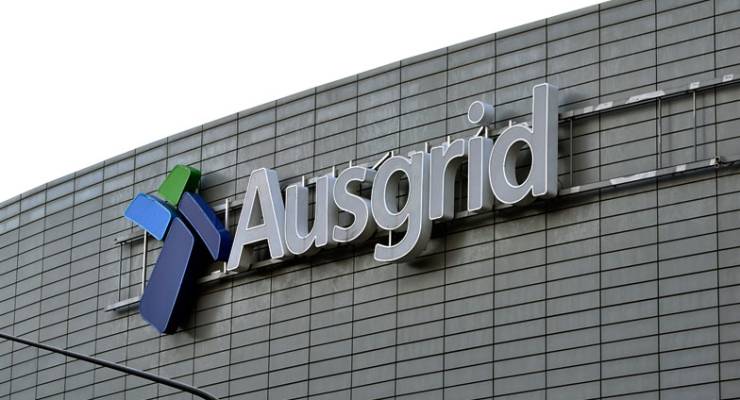
Blink and you’ll miss it in the coverage of the Ausgrid sale today: IFM Investors and AustralianSuper, which have purchased the majority stake in the NSW poles-and-wires electricity company, are industry superannuation entities — IFM is an infrastructure investment vehicle owned by industry funds, and AustralianSuper is an industry fund itself.
Normally whenever The Australian or the AFR mention industry super funds it’s to note that they’re “union-run” (actually they’re jointly run by employers and unions, but whatever) and to suggest something there’s something subtly inappropriate about their continued existence at the expense of bank-owned retail super funds. There was none of that today in the solitary mentions in both outlets that industry super had saved Mike Baird’s bacon, his budget and, perhaps, his government.
[Attacking industry super an irrational bloodsport for union-haters]
They’ve also saved Treasurer Scott Morrison, who allowed xenophobia and echoes of the White Australia Policy to wreck Baird’s sale plans when he inexplicably nixed bids from China and Hong Kong (“national security” was the excuse, but he might as well have invoked motherhood). Back in August, Morrison even attacked industry super funds for failing to invest in Australian infrastructure, telling his dear friend Ray Hadley
“I think Australians and the Prime Minister and I are frustrated that we’re not seeing more of that $2 trillion in capital which is there in Australian superannuation savings, not lining up on these sorts of transactions, whether it’s those agricultural stations or whether in fact it’s the electricity assets like Ausgrid.”
Those remarks were already blatantly wrong at the time. Industry super funds are clearly the biggest investors in infrastructure among super funds, while the Liberals’ beloved retail funds invest next to nothing in infrastructure. Now, inconveniently, industry super has demonstrated further how wrong Morrison was by buying Ausgrid.
In fact IFM and AustralianSuper have rescued the Liberals from a deep hole dug by Morrison. Baird, having shown the courage to push forward electricity privatisation in the face of a disgusting and openly racist campaign from the grubs of NSW Labor and the unions, was “rewarded” by Morrison with having the rug pulled from under the sale process. That process was going to have to be restarted in the search for either an all-Australian bid or a foreign bid that would be acceptable to Morrison — presumably one without any Chinese or Hong Kong involvement because, you know, “the cyber”, or something. The unsolicited IFM/AustralianSuper bid removes the requirement for a whole new process.
[Ausgrid decision that of a cowering country closed for business]
The AFR was happy to run the gnashing of teeth from wannabe bidders and fee-clipping advisers who missed out, with the suggestion from an “unnamed banker” that “it is beyond question that they have left money on the table”. Of course, Mr/Ms Mystery Banker didn’t volunteer a figure for how much was “left on the table” — or an explanation of why the bank they work for didn’t put together a bid like the industry funds did. Fancy “trade union-run” super funds having the wherewithal to seize an opportunity while the private sector was twiddling its thumbs …
So those evil “union-run” industry super funds outperform retail funds so members will need to rely less on the aged pension, they invest more in infrastructure than retail funds, they move faster than the banks and have saved the Liberals from an embarrassing problem created by themselves on Ausgrid. On the basis that no good deed goes unpunished, expect the Liberals to only go after industry super even harder wherever they can.








You were fine till you jumped on the sell the poles bandwagon. The benefits go to Sydney, everyone pays the higher power price.
I have to wonder about governments that sell the intermediary (grid) that will enable (or not) a smooth transition from coal to multiple sources of renewable energy – both regional and suburban.
Here we are with an unmapped transition and States want to sell their best instrument to manage that transition at micro, meso and macro levels.
Talk about short-termism.
Privatisation of monopoly providers is generally considered to be not a good thing. Victorians can attest to that, the power bills they get are huge.
I wonder if there will be a problem receiving the full amount of fed money for being good old boys selling off the family jewels like the Vics are having with their Melbourne port sale.
Talk about the stupidity of governments…all doing the same thing while expecting a different outcome!
I hope the residents of NSW enjoy a doubling in the cost of electricity over the medium term. That is exactly what happened in SA and VIC when their electricity was privatised.
NO essential service should be flogged off to anyone…foreign or otherwise!!
BK’s neolib boosterism may soon have its comeuppance as more homes, buildings & currently brown field sites become power generators for nearby consumption.
The gold plated poles & wires will become a textbook example of stranded assets offloaded to mugs (though thought at the time to be a coup on dumb tax payers).